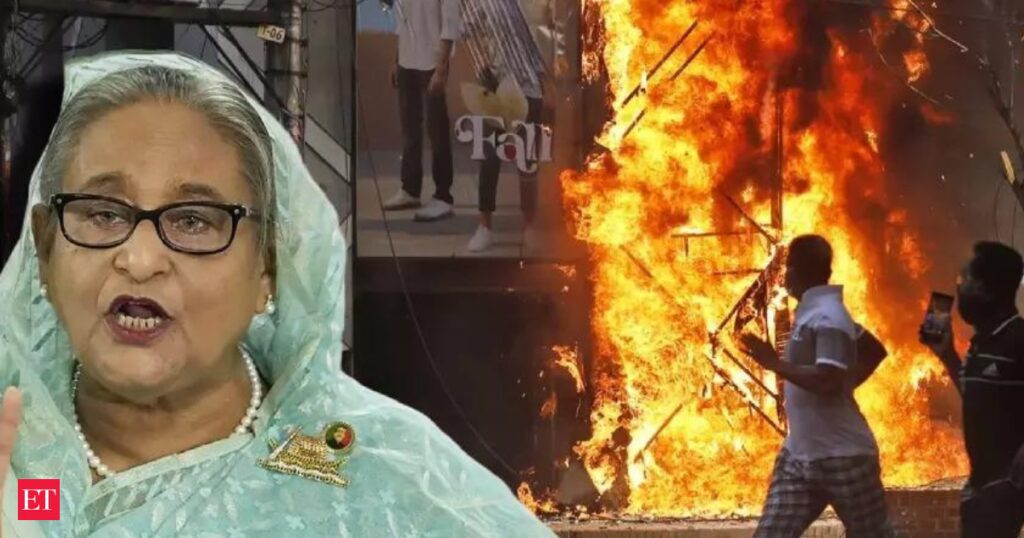Weeks of deadly protests
Sheikh Hasina stepped down following weeks of protests that escalated into violence. Hasina, a dominant figure in Bangladesh politics since her father’s assassination nearly fifty years ago, faced immense pressure from demonstrators demanding her resignation.
Mishandling job quota protests
Hasina has been credited for Bangladesh’s remarkable economic turnaround but has also faced criticism for increased authoritarianism and a growing democracy deficit. As per a TOI report, over the past four years, reports of massive corruption and uncontrolled price rises have fueled grassroots anger. The unrest stemmed from high youth unemployment and dissatisfaction with the job quota system (56% in all, with 30% reserved for descendants of the 1971 freedom fighters). With nearly 32 million young people unemployed or out of education in a population of 170 million, the issue became a focal point of discontent.


Arrogance
The anti-quota protest agitation that finally brought her down is a classic case of mishandling that, some say, was rooted in her growing arrogance. In 2018, following student protests against the unusually high quotas in government jobs, Hasina’s government decided to scrap the quotas. However, on June 5, Bangladesh’s High Court reinstated the quotas, sparking renewed protests. Instead of addressing the students’ concerns, Hasina unleashed a verbal tirade against them, suggesting she supported the quotas. The movement gained momentum, and Hasina ordered a police crackdown, with the pro-government Chhatra League also attacking the students. Around 300 people, mostly students, died over the course of the agitation—close to 100 on Sunday alone. The ensuing groundswell became a mass movement led by students, reminiscent of historical student-led agitations in Bangladesh. The more violent the crackdown, the fiercer the resistance.
Controversial Razakar comment
During a press conference on July 14, Hasina made a controversial statement referring to Razakars, which escalated the student protests. When asked about the protests, she remarked, “If the grandchildren of freedom fighters do not receive (quota) benefits, who would get it? The grandchildren of Razakars?” The term Razakar, meaning ‘volunteers,’ is derogatory in Bangladesh, referring to those who supported the Pakistani military during the Bangladesh liberation war and are accused of heinous crimes. The comment further angered the students, who retaliated with the chant, “Tui ke? Ami ke? Razakar, Razakar!” (Who are you? Who am I? Razakar, Razakar!).
Rampant corruption and nepotism
In a TOI report, detractors suggest Hasina’s final years in office were marred by rampant corruption, compromised election processes, and increased nepotism. The middle-class leadership of the Awami League was gradually replaced by businesspersons known for their proximity to Hasina. Some of the country’s worst bank defaulters ended up as her advisers or ministers. Seventeen members from her extended family were in parliament. Despite her public statements about cleansing her party and government, revelations about her aides’ amassed wealth did not sit well with the impoverished populace.Inputs from TOI

